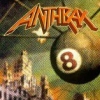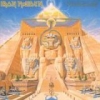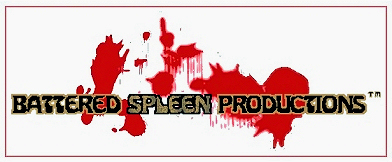A Little Class
Literary critics are always incredibly harsh on the horror genre. That is even if they will bother to think of it, let alone look at it. There are always exceptions, I don't want to slight those with the intelligence to break out of the mould. For the most part though the literary community thinks of horror as pretty much the gum on the bottom of their shoes. Just ask any English professor or critic about a horror novel and they will have something derogatory to say about it and the author. This attitude also sometimes comes from the mainstream, and even the readership.
Certainly not everything is worthy of a proper literary dissection and discussion. However to dismiss an entire genre is nothing short of ignorant. Horror has an incredibly illustrious literary history in many languages. Since it is the language we speak, we will focus solely on horror in the English language. One of the very first horror stories ever written was the poem _Beowulf_. _Beowulf_ is also the oldest epic written in English. Drawing from Danish history and folk tales, it was composed, probably in the early 8th century by an author unknown to us today. It tells the story of a hero, Beowulf, who battles a horrible monster, Grendel.
"Grendel this monster grim was called,
march-riever mighty, in moorland living,
in fen and fastness; fief of the giants
the hapless wight a while had kept
since the Creator his exile doomed."
The _Beowulf_ poem is written in such ancient English that barely every tenth word is understandable to the modern reader. Fast forward a few centuries to 1794 and William Blake wrote _The Books of Urizen_. Urizen is a mythical being lying somewhere between being an angel, a demon, and a "law-giver" well described even when not being spoken of directly.
"Lo, a shadow of horror is risen
In Eternity! Unknown, unprolific,
Self-clos'd, all-repelling: what demon
Hath form'd this abominable void,
This soul-shudd'ring vacuum? Some said
'It is Urizen.' But unknown, abstracted,
Brooding, secret, the dark power hid."
In 1798 Samuel Taylor Coleridge penned the poem _The Rime of the Ancient Mariner_, a tale of morality and creatures beyond normal mortal existence.
"Her lips were red, her looks were free,
Her locks were yellow as gold :
Her skin was as white as leprosy,
The Night-mare LIFE-IN-DEATH was she,
Who thicks man's blood with cold.
Death and Life-in-Death have diced for the
ship's crew, and she (the latter) winneth
the ancient Mariner."
Then we jump ahead to 1831 and the first science fiction and seminal horror novel came out from Mary Wollstonecraft Shelley. Her tale _Frankenstein: The Modern Prometheus_ shocked and thrilled its audience with the story of medical student Victor Frankenstein and his driving goal of defeating death. Victor raided crypts and morgues to gather parts to build a new man out of several others so that he could imbue it with new life. Such blatant egotism had its price though.
"The shutters had been thrown back; and, with a sensation of
horror not to be described, I saw at the open window a figure
the most hideous and abhorred. A grin was on the face of the
monster; he seemed to jeer as with his fiendish finger he
pointed towards the corpse of my wife."
Robert Louis Stevenson (yes, the one who wrote _Treasure Island_) authored _The Strange Case of Dr. Jekyll and Mr. Hyde_ in 1886, the first obvious psychological horror. In 1897 nearly every goth's wet dream was released upon the world with the printing of Bram Stoker's _Dracula_. Then literary golden child William Butler Yeats cheered everyone up about the end days with his poem _The Second Coming_ in 1920.
"The darkness drops again; but now I know
That twenty centuries of stony sleep
Were vexed to nightmare by a rocking cradle,
And what rough beast, its hour come round at last,
Slouches toward Bethlehem to be born?"
In 1922 T.S. Eliot produced _The Wasteland_ and excited both critics and the same audience as Lovecraft.
"And bats with baby faces in the violet light
Whistled, and beat their wings
And crawled head downward down a blackened wall
And upside down in air were towers
Tolling reminiscent bells, that kept the hours
And voices singing out of empty cisterns and exhausted wells."
These are all names that have been extolled, held high, and tickled the fancy of many an English Professor. Why? Certainly a high level of quality is involved. These poems, stories, and novels are also certainly influential. However, these pieces of horror were not necessarily the main thrust of these authors creation. It seems that if the author is venting such ideas simply to be rid of them then it is literarily en vogue to do so. Certainly no one complained when Charles Dickens wrote such stories as _A Christmas Carol_, or Henry James _The Turn of the Screw_. Even Shakespeare did not shy away from such dark elements as Shylock in the _Merchant of Venice_ demanding the grisly payment of a pound of flesh, the speech upon the skull of poor Yorick in _Hamlet_, or the witches in _Macbeth_.
Thus endeth the lesson. What have we learned? We have learned that the heritage of our beloved genre more than certainly has its pedigree. People may scoff at Stephen King, or Cliver Barker, even H.P. Lovecraft and Edgar Allen Poe. However if they do, you certainly have no lack of acutally literary authors to call upon in aid of your argument. Not to break a copyright, but "Knowing is half the battle."
© 2002 Robert G. Male
Mood: mellow.
Music: Toast to the Extras by Anthrax and Flash of the Blade by Iron Maiden.
 | Buy these at Amazon.ca Click Images to Buy |  |





0 Comments:
Post a Comment
<< Home